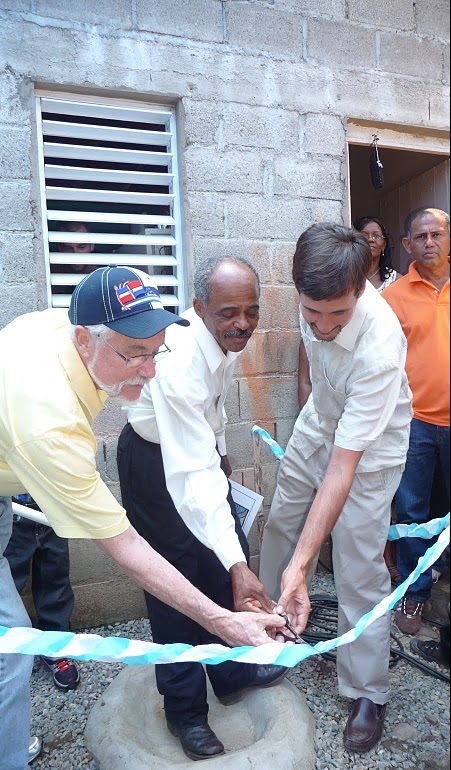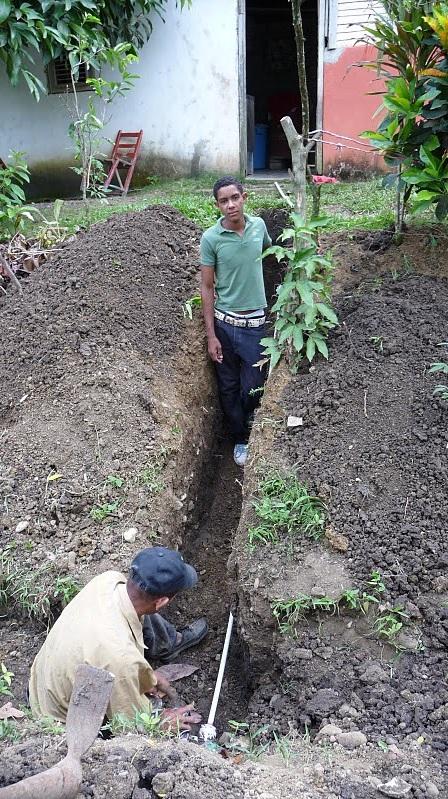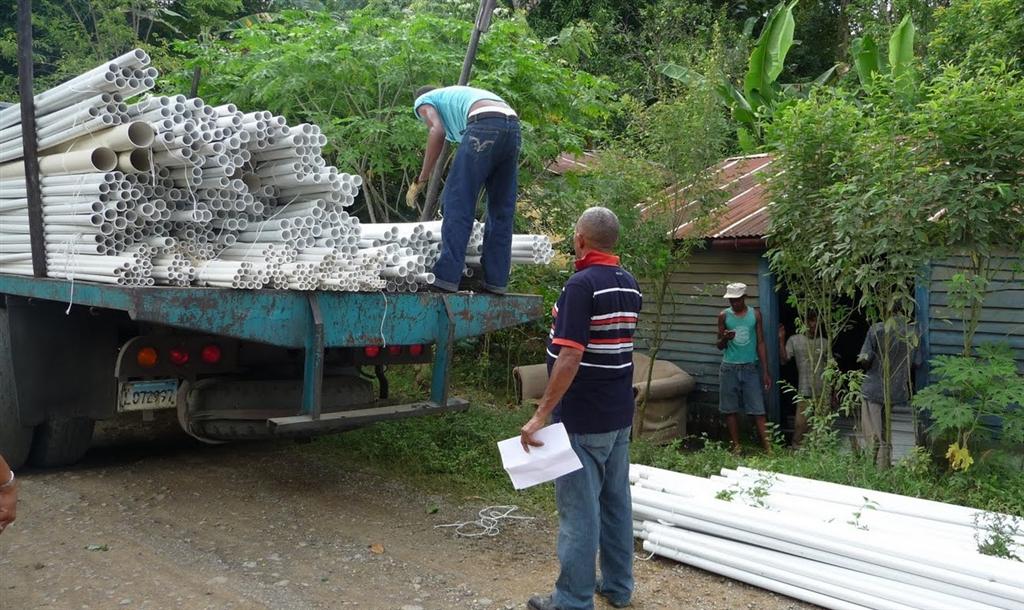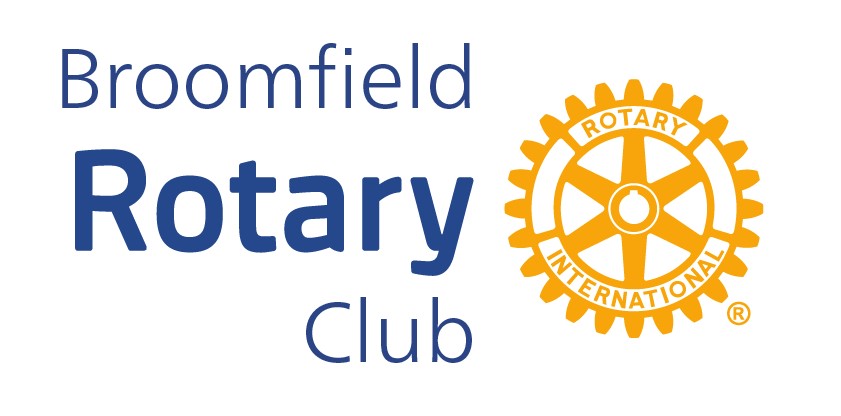Dominican Republic Water Project
Broomfield
Dominican Republic 3 H Grant Project Inspection & Rotary Project Fair ~ February, 2011
The 3H Grant is a two million dollar project funding vehicle created by Rotary International and USAID to improve living conditions, alleviate disease and hunger, and enhance human and social development in underdeveloped nations. Through the combined efforts of resident populations and funding agencies providing technical knowledge and hands-on management, raising living standards in these countries will advance international understanding and good will. Building peace through people helping people is the realistic goal of Rotary members working through Rotary International.
The Rotary Foundation (TRF) Matching Grant program received $500,000.00 through monetary donations made by approximately eighty Rotary Clubs and Districts throughout the USA. A matching $500,000.00 was added by TRF giving the Dominican Republic 3H Grant Program one million dollars. USAID provided the additional monies necessary to complete projects proposed for DR 3H Grand funding. The managing Rotary Club sponsor for the DR 3H grant is Michigan’s Rockford Rotary Club. Rockford Rotary Club was represented by forty members out of the total of forty-seven Rotarians who traveled to the Dominican Republic to inspect in-progress projects sponsored by individual American Rotary Clubs. Among the Rotary Clubs contributing to this 3H Grant were Colorado’s Broomfield Evening Rotary, Brighton Early Rotary, Northglenn/Thornton Rotary and California’s Menifee Rotary, partner sponsors for the La Descubierta and Los Uveros clean water projects.
Bob Hildreth, an American resident of the Dominican Republic, is a member of the Puerto Plata Rotary Club, host club for the 3H Grant. Bob is on-the-ground coordinator for all aid projects accepted for funding through the Grant, including the two Colorado water projects.
On February 2, 2011, planes from the United States landed at the DR Puerto Plata Airport, where the temperature had reached 83 degrees and the humidity hovered at 70 to 80%. Blizzards in the United States, including Colorado, had produced heavy snows and temps at minus18 degrees and lower. In spite of cancelations and delays, some flights from other snow bound states arrived safely. Rotarians were guided to hotel rooms at the Riu Merengue resort on Atlantic north shore of the DR. After finding their rooms and unpacking bags, Rotarians gathered to meet each other and learn the itinerary for the week.
All the Rotarians gathered at the historic Hogar des Ancianos Catholic Hospital. Knowledgeable Rotarians outlined the long history of the hospital and its vital services to a poor community. Peace Corp volunteer, Gabe Miller, Colorado State University Civil Engineering graduate, described the two clean water projects sponsored by the Broomfield Evening Rotary Club. Breaking into travel groups, the Colorado three, O’Hayre and the two Mazzola and Peace Corp worker, Gabe Miller continued to the village of La Descubierta, high in the Cordillera Septentrional, a low ridge of rugged hills. The trip to this remote area was made possible by chauffer local Rotarian and Jeep owner, Martin Haase, a German business man who moved to the DR 18 years ago. It took several hours to travel the very rocky, rugged twelve mile road to the village with one stop to deflate the tires to help with the rough terrain.
Gabe Miller’s village host family served lunch as a welcome to La Descubierta. Gabe is housed by this family while working on their clean water project. Following a tour of the work site, the Colorado group met with 25 members of the village water committee, Gabe translated as Spanish and English combined seamlessly to establish this new connection between people who had once been strangers to each other. Village residents were gracious and appreciative of Rotary assistance in fulfilling a long held dream of cold, clean water. Residents benefiting from a project funded through the 3H Grant must supply the labor and receive the training vital to sustaining the water/sanitation systems once the project is completed. Residents will pay a monthly stipend to provide funds for system maintenance.
Proudly, two little girls led a tour of their one room school house. Elementary classes are held in the morning, and secondary in the afternoon. Leaving La Descubierta was a happy-sad mixture of laughter and hugging with kind words in two languages no longer needed to convey what smiling faces and teary eyes said clearly. The drive back to Puerto Plata seemed much easier.
The next day, Friday, the entire Rotary group visited the School for the Deaf. Students of all ages are taught basic academics and trained in sewing, woodworking and craft making. In a tiny computer lab, computers are used to teach language, signing and computer skills. The facility is small and crowded and the equipment outdated and always donated, but the students are eager and well taught….with love.
At the orphanage for discarded children, housed in a building that is overcrowded, Rotarians were met by the nun who manages the center. With the building about to be sold, the orphanage sought help in finding a new home. The local monastery has donated enough land for a new building but funding will be difficult. Before leaving the DR, Rotarians were able to ‘adopt’ an orphaned child for a year by donating $300.00
By Saturday, it was time for everyone to travel to Santiago to meet the Santiago\La Vega Rotarians. The US Rotarians were divided and paired with local host families. The Mazzolas went to La Vega, a city of about 200,000 people. Rotarians Carmen and Carlos Guiterrez-Jiminez were their hosts. Teenagers Gabriella and Karla and nine year old Carlos Jiminez were delighted to have Americans visit. Thankfully, all the children were fluent in English.
The La Vega Rotary Club held a traditional DR dinner party Saturday night; rice, chicken broth with add-your-own cooked vegetables and cake. Staying up late after dinner, Marion joined the girls on a trip through Face Book, finding Mazzola grandkids and ‘friending’ them. Of course, DR e-mails and Face Book have become daily events since returning from the DR.
Remaining in Santiago, John O’Hayre was the guest of a pediatric cardiologist who practiced at one of the large hospital in Santiago. With only Spanish spoken, communication was problematic. While on tour of the hospital, John learned that, twice a year, his host brings pediatric heart specialists from the United States and Europe to his hospital to teach procedures and do complicated pediatric heart surgeries. Santiago Rotarians hosted a barbecue for John. The barbecue setting offering the opportunity to meet most of the Santiago Rotarians and enjoy new friends.
Regrouping Sunday in Santiago, Rotarians attended the 2011 Rotary Project Fair. There were twenty or more Rotary Clubs displaying various projects to the visiting US Rotarians. Speeches and brochures had been prepared to present proposed projects. Included in the many projects offered for consideration were purchases of hospital equipment, home water filters, clean water and sanitation systems and, from the local university, the preservation of the DR caves housing the largest collection of cave drawings in the Caribbean.
On Monday, it was time to tour the small Los Uveros chocolate factory started by the village women using scavenged equipment. The ladies also make wine using cacao from the neighboring plantation for their products. Primitive as that factory appeared, the chocolate and wine were excellent and popular with the Rotarians who boarded the bus carrying tote bags heavy with wine and assorted chocolates.
The Colorado Los Uveros water project was the destination stop for the Rotarians. This project, at its lower elevation, was easier to reach and provided the opportunity for the large group to see the completed workings of the new distribution water center that delivers cold, clear bacteria free water. The distribution system includes water flow lines, a storage tank, a pump house and, at each home, a newly installed outdoor water spigot for family use. The new water system utilizes gravity flow from the storage tank located above the village.
No longer will women and children spend hours hauling unsafe water several kilometers to meet their family water needs.
The Los Uveros water committee roasted a pig for lunch to honor their guests. Rotarians heard stories about building the system and community life. Again, good-byes included laughter, hugs and invitations to return as Los Uveros guests.
Most foreign visitors to the DR see the beauty of the country and the people who live there, but, never observe the daily struggles ever present in the lives of the Dominicans who serve them. Everything we take for granted, clean water, electricity, plentiful well equipped schools and homes with more than one room seem like unattainable luxuries in underdeveloped countries.
With their visit ending, each Rotarian had the opportunity to examine his/her Dominican Republic experience. On this trip, each of them had looked away from the brilliant blue seas and sandy beaches to take a good look at the real lives of the DR people. Never had the Rotary motto ‘Service above self’ seemed so important.




